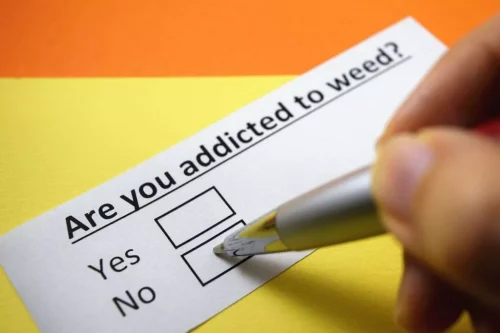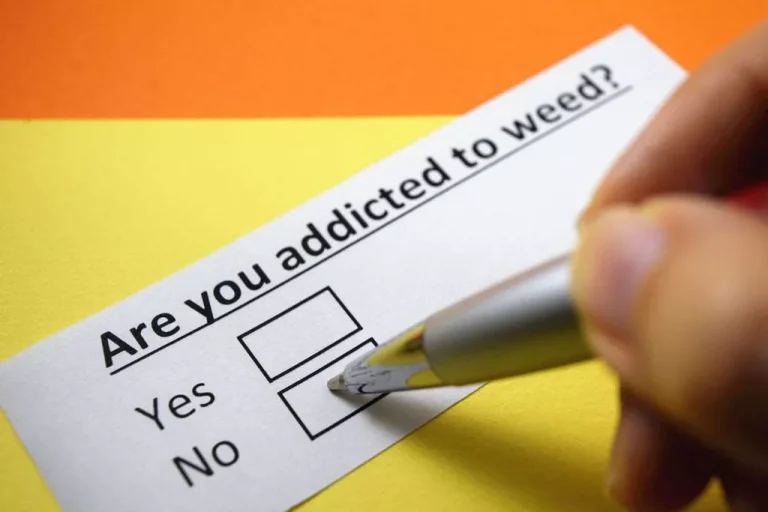
All these signals can point to a deeper pattern of alcohol misuse and dependence. The more embedded these habits, the more crucial it becomes to address them early and seek support from professionals or peers. Don’t wait until a person has more than six symptoms before seeking treatment. By then, they already have severe alcoholism, which can be more difficult to treat.
Medication-Assisted Treatment
Blacking out from drinking too much is a warning sign of this stage, along with lying about drinking, drinking excessively, and thinking obsessively about drinking. Recognizing these impacts can help families better understand the marijuana addiction need for treatment, recovery, and open communication to foster a supportive environment for healing. SignDescriptionToleranceIncreased amounts of alcohol needed for the same effect.DependenceWithdrawal symptoms occurring without alcohol. They might give up activities, interests, and responsibilities to maintain their habit.
- Support groups can be a highly effective form of help at this stage.
- Males, college students, and people going through serious life events or trauma are more likely to experience AUD.
- Understanding these levels can help in identifying the stage of abuse and seeking appropriate help.
- The primary symptom of stage one is the development of alcohol tolerance.
- The inability to regulate drinking patterns leads to dangerous behaviors, social isolation, and neglect of responsibilities.
- Being able to recognize thesigns of alcoholismis one of the crucial first steps to finding recovery from alcohol use disorder.
Finding Detox and Treatment
- This stage marks an important point where alcohol withdrawal symptoms and cravings significantly impact daily life, reinforcing continued alcohol use.
- The warning signs for middle-stage alcoholism include increased drinking despite negative consequences, physical withdrawal symptoms, hiding alcohol use, and neglecting responsibilities.
- Chronic severe alcoholics drink more often than the other subtypes but do not drink as much as the young antisocial subtype.
- But you are deceiving yourself if you think that your drinking hurts no one else but you.
- Keep in mind that help is available, including residential addiction treatment in Atlanta at West Georgia Wellness Center if someone’s alcohol use becomes truly unmanageable.
Consider talking with someone who has had a problem with drinking but has stopped. There is a significant overlap between anxiety, alcohol misuse, and alcohol use disorder. Researchers found that those with an anxiety disorder were between 2.1 and 3.3 times as likely to develop alcohol use disorder. Hangover anxiety can also arise as the brain adjusts to the mental effects of alcohol. Drinking floods the brain with the neurotransmitter (brain chemical) gamma-aminobutyric acid (GABA), which contributes to feelings of short-term relaxation.
Should You Quit Drinking If You Have an Anxiety Disorder?

If you or a loved one exhibit these signs, seeking professional help is essential. Evoke Wellness at Coconut Creek offers comprehensive alcohol addiction treatment programs, including residential and outpatient options, as well as specialized therapy programs. Remember, recovery is possible with the right support and resources. Take the first step towards a healthier future by reaching out for help today.

How to Build Emotional Resilience in Recovery
Rebuilding requires honest conversations, boundary-setting, and consistent sobriety. Family or couples therapy can also facilitate healing if each person commits to open communication and healthy changes. Sustainable recovery is possible and the best version of youself awaits at our Atlanta and Savannah, Georgia addiction recovery center. We’ll give you skills to discover your self-worth and show you the tools for a life of hope and promise. If you or someone you know starts showing these signs, you should get immediate help.

Some people drink heavily all day, while others binge drink and then stay sober for a while. Alcohol addiction, also known as alcoholism, is a disease that affects people of all walks of life. Experts have tried to pinpoint factors like genetics, sex, race, or socioeconomics that may predispose someone to alcohol addiction. Psychological, genetic, and behavioral factors can all contribute to having the disease. Recognizing the early signs and risk factors for AUD can help you seek early treatment and intervention to break alcohol misuse patterns. Alcohol use doesn’t just suddenly become a problem—issues with alcohol use can build slowly over time, how to recognize signs and symptoms of alcoholism and alcohol abuse in ways that are easy to overlook.
Are You Feeling Suicidal?

Timely diagnosis and brief interventions, such as motivational counseling and outpatient therapy, effectively address risky drinking behaviors before they escalate. Alcoholism is treated at different stages by tailoring interventions to the severity of the addiction. In the early stage, brief interventions, outpatient counseling, and educational programs are effective in addressing unhealthy drinking patterns before dependence develops. Et al. 2012, titled “The genetic basis of addictive disorders,” genetic factors contribute to approximately 40% to 60% of an individual’s risk of developing addiction. Differences in dopamine receptors and brain regions responsible for reward processing increase susceptibility to addictive behaviors. The time frames of alcohol addiction stages are highly variable, depending on factors such as genetics, frequency and quantity of alcohol consumption, psychological health, and environmental influences.

Indicators of alcohol dependence
Disulfiram causes unpleasant reactions when alcohol is consumed, serving as a deterrent. Detoxification, or detox, is the initial process of removing alcohol from the body, allowing it to adjust to the absence of alcohol. This stage lasts several days to a week, depending on the severity of the addiction. Chronic and rapid tolerance contribute to early-stage alcoholism through different mechanisms. Chronic tolerance develops gradually with repeated alcohol exposure, leading to reduced motor impairment and sedation despite high alcohol levels.
- BetterHelp offers affordable mental health care via phone, video, or live-chat.
- Along with the other symptoms of a hangover, such as regret and embarrassment, anxiety can drive feelings of irrational worry, panic, or fear.
- Despite how serious this stage is, recovery is still possible with professional help.
- Telling yourself you can quit makes you feel in control, despite all evidence to the contrary and no matter the damage it’s causing.
- Liver disease, kidney failure, and respiratory issues are potential consequences.
Excessive drinking is defined as 15 drinks or more a week for men and eight drinks or more a week for women. People often try ineffective methods to control their drinking, like switching from liquor to beer or limiting drinking to weekends. Try setting limits on your drinking, tracking how much you consume, or finding alcohol-free ways to relax and socialize. Alcoholism is NOT defined by what you drink, when you drink it, or even how much you drink.